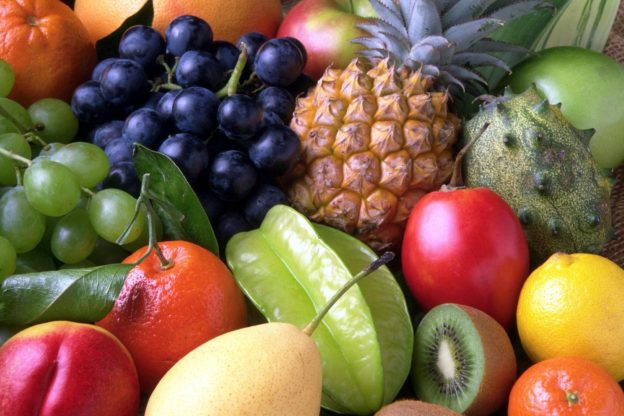When we clog our system up with indigestible foods and toxins they accumulate in our liver, kidneys and body tissues and can promote inflammation. Inflammation can contribute to all kinds of conditions of the physical body such as eczema, asthma, rheumatoid arthritis, Chron’s and more.
If we can reduce/eliminate foods causing inflammation, or causing the body to work overtime to digest, assimilate and excrete, then the body will be able to expel toxins, promote cellular regeneration and be well. An anti-inflammatory diet contributes to optimum health and healing in the body and can be used alongside a therapy for a health condition. It:
- Removes allergenic and intolerant foods that may promote inflammation in the body such as dairy products, red meat, gluten and alcohol.
- Removes inflammation promoting foods such as, those containing hydrogenated oils, processed foods , sugars, alcohol, caffeinated, sugary drinks, non-organic eggs, meat, seafood, dairy and soy products, fried or deep fried foods, nightshade family foods like potatoes and tomatoes, and gluten.
- Reduces the intake of harmful environmental chemicals and toxins such as pesticides, hormones like those found in some meats and antibiotic residues, plastics that find their way into food or water, cosmetics, cleaning products and more.
- Reduces difficult-to-digest foods such as unsoaked beans, pulses and nuts so that the digestive system can break down food into the micronutrients we need to heal, absorb it well then dispose of waste products.
An anti-inflammatory diet may be advisable for you to follow if you:
- Experience a chronic condition characterised by inflammation
- Have allergies and intolerances
- Have been told you have an autoimmune condition.
- Want to cleanse your body or organs, for example a liver detox
- Want to conceive
- Have cancer
- Want to have optimum health and wellbeing
- Want to be free of depression and/or anxiety
- Much more!

What Else Is In An Anti-Inflammatory Diet?
Protein
Decrease your consumption of animal protein except for fish (salmon, tuna, talapia, anchovies, octopus), turkey, chicken (in serious chronic inflammatory disease – chicken, turkey and eggs may be avoided altogether as it requires more energy to digest); eat more vegetable protein such as peas, spinach, kale, broccoli, sprouts, mushrooms, artichokes, brussel sprouts, asparagus, seaweed, lentils, onions, chives, cauliflower and collard greens, beans (especially Navy), nuts (cashews, almonds, pistachios, peanuts, walnuts), nut butters and oils, tofu, pulses, quinoa, cacao, maca, broccoli, jack fruit, seeds (chia, pumpkin, sunflower, flax, sesame, hulled hemp), edamame and green peas.
Read more about proteins in my article “Transforming your energy system through food”.
Fats
Keeping trans fats to a minimum. Have ample amounts of essential fatty acids – fats that cannot be synthesised by the body. Omega 3 is an important anti-inflammatory food which can be found in flaxseeds, walnuts, pumpkin seeds, olives, avocados, oily fish, chia seeds and black cumin seed oil. Other healthy fats like monounsaturated fats help to lower bad cholesterol (and also lower inflammation) and is found in nuts, nut butters, seeds, their oils, avocado oil, olive oil, cacao.
Some saturated fats like coconut/coconut oil have their own health benefits, those with heart disease may want to avoid blocking their arteries any more.
Read more about healthy fats in my article “Transforming your energy system through food”.
Carbohydrates
Refined and other processed carbohydrates often include unstable substances such as polyunsaturated fats, which are unstable and inflammation-promoting, so reduce these.
Choose complex carbohydrates – whole-foods that are more stable carbohydrates which have other antioxidants and micronutrients vital for reducing inflammation and our overall health.
Eating too much refined or simple carbohydrates can also lead to high LDL cholesterol, metabolic syndrome, diabetes and obesity, all which have an inflammatory aspect to the disease process. Processing carbs requires insulin too which causes more inflammation in the body.
Read more about healthy fats in my article “Transforming your energy system through food”.
Whole food carbohydrates are found in green vegetables such as courgette, green beans and cabbage; starchy vegetables such as sweet potatoes, pumpkin and beets; beans and pulses such as chickpeas, lentils and beans; fruits such as bananas, berries and tomatoes. These are more nutritious sources as they also contain proteins, fats and other important nutrients, rather than refined and simple carbs which don’t have much.
Fibre
Fermentable fibres have anti-inflammatory activities and are protective. They help to stimulate good bacteria production in the colon, stabilise blood –sugar levels, suppress bad cholesterol (LDL), protect against cancer, provide a protective layer in the gut and boost white blood cell production.
These can be found in gluten-free oats, fruits like dates, dried coconut and prunes and vegetables like peas, lentils, beans.
There’s a particularly important fibre called FOS (fructooligosaccharides) which feeds good bacteria which you can read about in my article “Bacteria really is our best friend”.
Phytonutrients
Some phytonutrients (nutrients which have been proven to be beneficial to health) affect anti-inflammatory processes in the body.
Carotenoids are one of these (shown to inhibit pro-inflammatory gene expression and reduce inflammatory markers in the body such as CRP) and can be found in tomatoes, red grapefruit, watermelon, guava, carrots and other red/orange coloured foods.
Flavanoids are another anti-inflammatory inducing phytonutrient and can be found in apples, citrus fruits, garlic, leeks, onion and berries.
Herbs & Spices
Herbs and spices have powerful anti-inflammatory properties, mostly because of their antioxidant function. Some herbs and spices that have been shown to be supportive to our health are turmeric (curcumin), ginger, garlic, cinnamon, paprika, cloves, thyme, oregano, bosweillia and rosemary.
Vitamins & Minerals
All vitamins and minerals play at the very least an indirect role in reducing inflammation or promoting overall wellness, however here are some key ones:
- Magnesium – found in dark leafy greens, nuts and seeds, fish, avocado, bananas, cacao
- Vitamin B6 – fish, poultry, sunflower seeds, dried fruit, spinach avocado, widespread in veggies and fruit
- Vitamin C – dark leafy greens, broccoli, berries, citrus fruit, papaya
- Vitamin D – fish, eggs, liver, the sun!
- Vitamin E – spinach, nuts, seeds, avocados, shellfish, plant oils, squash, pumpkin
Water
Drinking at least 2 litres of filtered water per day is vital as it helps to flush out toxins filtered out by the lungs, lymphatic system, liver and kidneys. This will help to keep your systems clean and promote proper functioning detoxification and immune systems therefore reducing inflammation.
Essential Oils
Using these potent versions of many of the foods and herbs mentioned above, plus more, can give us therapeutic effects, get deeper into the body at a cellular level and be quick to act.
Add in these therapeutic, clean, organic, POTENT inflammation and cancer fighting as well as super detoxing essential oils – nutrients in a concentrated form – and buy them from my online hop here – ZenGest blend**, ginger**, frankincense**, basil, rosemary*, On Guard blend**, oregano, helichrysum, cilantro**, fennel, thyme, wild orange, eucalyptus, clary sage*, Juniper berry, lavender*, melaleuca (tea tree)*, myrhh**, peppermint **, sandalwood*, wintergreen, marjoram, black pepper, clove** . My faves are noted with a * and super faves with a **.
For maximum juice potency – add in a good probiotic powder – like my favourite Bioachiophilus from Biocare, or a teaspoon of my favourite food for good bacteria – inulin (made from chicory root). These two products can be used separately or together and help create an abundance of good bacteria in the gut and body which ultimately helps clear out toxins and repair cells among other things! The inulin also helps with clearing out the bowels so take 2 or a little more for a good clear out!
If you feel that an anti-inflammatory diet would help you and you want assistance on how to tailor one to your specific needs, please email or call us to arrange your 30 minute free consultation.
We do telephone or Skype consultations. Contact me on natasha@yourearthclinic.com or call +44 161 877 3124.



